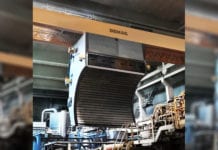Accrol Papers has confirmed the loss of 89 staff jobs at its UK tissue manufacturing sites.
In a statement the company said: “During the operational review currently being undertaken at Accrol Papers, it has been identified that a number of significant improvements should be made to the operational cost base of the business.
“As a result and with regret, the management has announced a proposed reduction in headcount, totalling 89, across the business.
“A consultation process is underway, which will be concluded within 45 days.”
The company was unable to make any further comment as it is now in a consultation period.
Accrol is a supplier of branded and private label tissue paper products to major retailers in the household sector and to national distributors in the AfH sector.
It manufactures toilet paper, kitchen towels, facial tissues and AfH products from toilet tissue centre feeds to wiping rolls and hand towels.
In the past three years, it has experienced rapid growth, including the opening of a new factory in Leyland and a warehouse and distribution centre in Skelmersdale.
The business was founded in 1993 by Jawid Hussain and its brands include Softie, Triple Softie, Mega and Handy as well as several supermarket private label lines.
The company has also issued a profit warning and proposed placing to raise funds of £18 million.
Chairman Peter Cheung said: “The past few weeks have been extremely challenging for Accrol and its shareholders, as we navigated our way through industry-wide issues and sought a solution to the group’s short-term funding problems.
“We believe that the business is through the worst and thank all our investors for their patience, during the period of suspension.”
It blamed the profit warning on sudden increases in wood pulp prices and said hardwood pulp prices rose by almost 41% and softwood pulp prices by 14% between January to October 2017.
It said the pulp price rise was due to mill closures in China, longer than expected mill maintenance in Brazil, and increased Chinese demand.






























